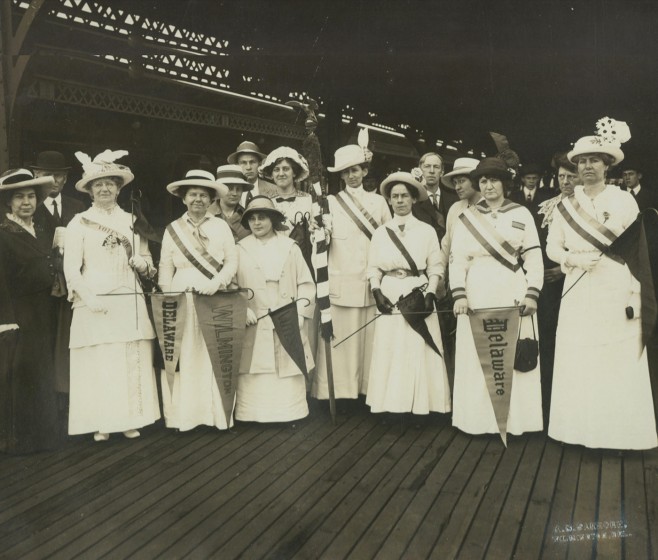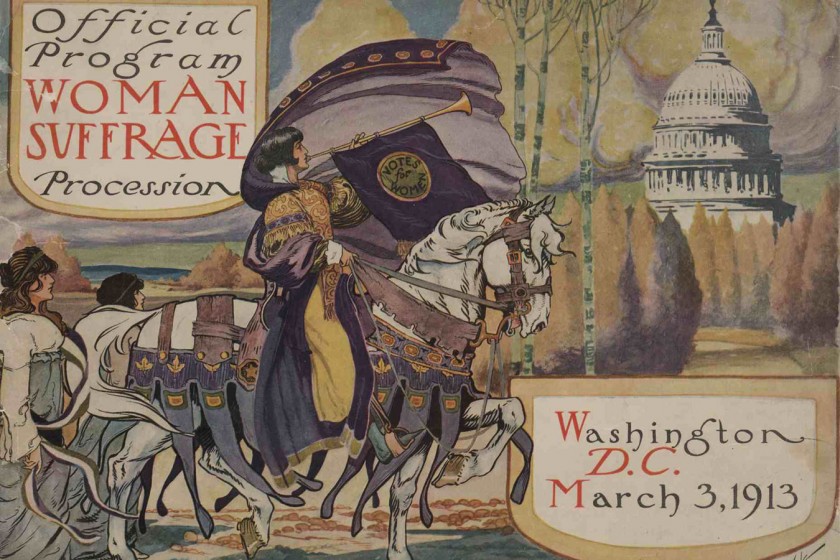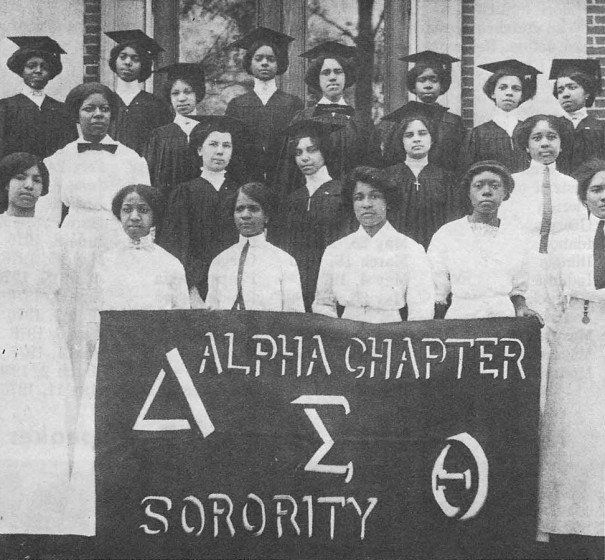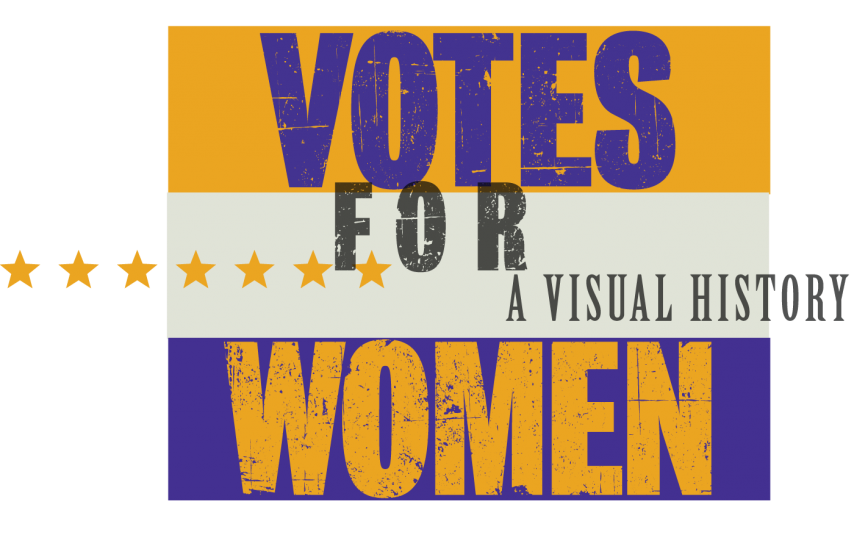The year 2020 marked the 100th anniversary of the Nineteenth Amendment to the Constitution of the United States, which granted women the right to vote—although many voting struggles persisted for marginalized groups following its ratification. The long road to women’s suffrage, spanning the nineteenth and twentieth centuries, played out very differently from political movements today. In the absence of televised and digital media, the suffragists spread their message through magazines, political cartoons, posters, plays, parades, and even through fashion. This exhibition will examine the visual culture of the suffrage movement, revealing how the “look” of women’s rights developed along with the important visual strategies that propelled the campaign.
Votes for Women: A Visual History includes drawings, illustrations, and posters from museums, historical societies, and private collections that visualize the complex political messages conveyed by suffragists. Also included are historic photographs of marches and rallies, including the 1913 Women’s Suffrage Procession in Washington D.C. Examples of the costumes, clothing, sashes and other emblems of women’s activism worn by suffragists enliven the presentation, drawing comparisons between the representations and realities of women’s struggle to win the vote.
Presenting an inclusive historical narrative, the exhibition recognizes the efforts of women of color and their community networks, which have been largely overlooked, giving the false impression that women of color were absent from the struggle for voting rights. As a way to recognize these marginalized communities, the Brandywine commissioned a diverse group of women artists to create a mural of illustrated portraits featuring some of the women whose role in winning voting rights has been historically minimized because of their race or ethnicity. The mural includes portraits of 14 local and national figures with accompanying biographies.
As Votes for Women further illustrates, the visual lessons of the suffrage movement provided a model for later activism, including the civil rights and social justice movements up to the present day, making this not just a centennial commemoration, but a window into contemporary discourse.
Serving as a companion to Votes for Women: A Visual History, an accompanying photography exhibition, Witness to History: Selma Photography of Stephen Somerstein, continues the story of the ongoing struggles marginalized communities faced when voting following the passing of the Nineteenth Amendment. The exhibition featured 55 photographs taken during the historic 1965 civil rights march from Selma to Montgomery, Alabama on March 25, 1965—a turning point in the civil rights movement that led to the passage of the Voting Rights Act.
Videos
Votes for Women Gallery Talks
Gender and Race in Politics: A Conversation
Votes for Women: A Visual History is made possible by PECO, the National Endowment for the Arts, The Coby Foundation, Ltd., the Arcadia Foundation, and The Center for American Art at the Philadelphia Museum of Art.

Additional support has been provided by donors to the Brandywine River Museum of Art Exhibition Fund in honor of Christine Podmaniczky, including the Davenport Family Foundation, William C. and Laura Buck, Ms. Carol Ware, Ms. Mary Graham, Mr. and Mrs. Anson McC. Beard Jr., Mr. and Mrs. Robert V. Duprey/Hamilton Family Charitable Trust, Mr. and Mrs. Michael R. Matz, Dr. and Mrs. John Fawcett, Morris & Boo Stroud, Mr. and Mrs. Christopher F. Buccini, Mr. Alan P. Slack, and Mr. and Mrs. Joseph W. Lurquin Jr.
Art of the Vote educational programs are generously sponsored by PNC Arts Alive.
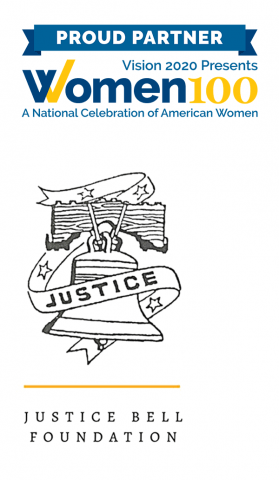
Vision 2020 is a national women's equality initiative headquartered at Drexel University’s Institute for Women's Health and Leadership. In the year 2020, Vision 2020 will lead Women 100: A National Celebration of American Women to commemorate the 100th anniversary of the 19th Amendment to the U.S. Constitution: women’s right to vote. Throughout the year, Philadelphia, the birthplace of American democracy, will be home to Vision 2020’s Women 100 programs and events, complemented by the work of Proud Partners — organizations committed to gender equality that have created their own programming in support of Women 100. Vision 2020 applauds Brandywine River Museum of Art, one of its Women 100 Proud Partners, on the organization’s commitment to advancing women’s equality and looks forward to its 2020 program.
The Justice Bell Foundation is a nonprofit organization whose mission is to educate, inspire and mobilize current and future voters. With programs for schools, a film about the Women’s suffrage movement, and a replica Justice Bell that will tour Pennsylvania in 2020, the Justice Bell Foundation is committed to reclaiming women’s history and highlighting women’s contributions. The Brandywine River Museum of Art is pleased to partner with the Justice Bell Foundation and display the replica bell in 2020.
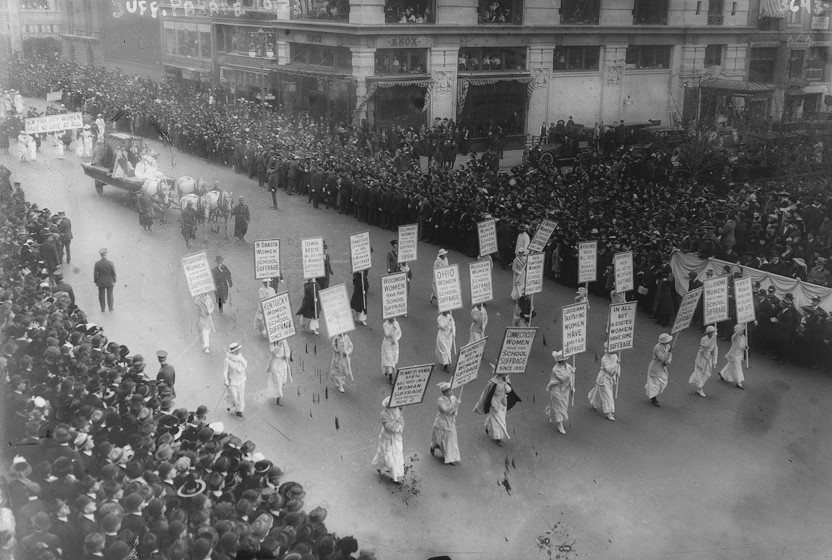
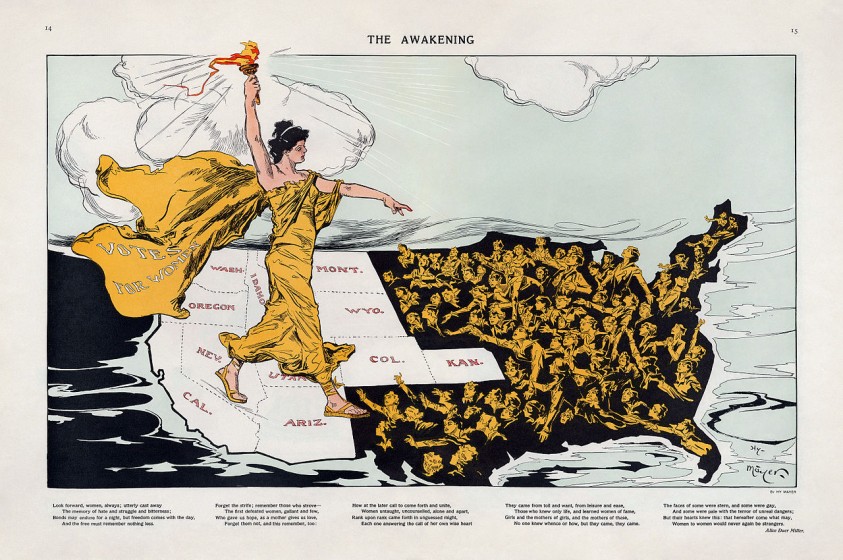
![[Suffragists demonstrating against Woodrow Wilson in Chicago, 1916], Library of Congress, Records of the National Woman’s Party.](/sites/default/files/styles/slideshow_large/public/images/slideshows/suffrage-votes-Chicago.jpg?itok=HDOCFr_9)
